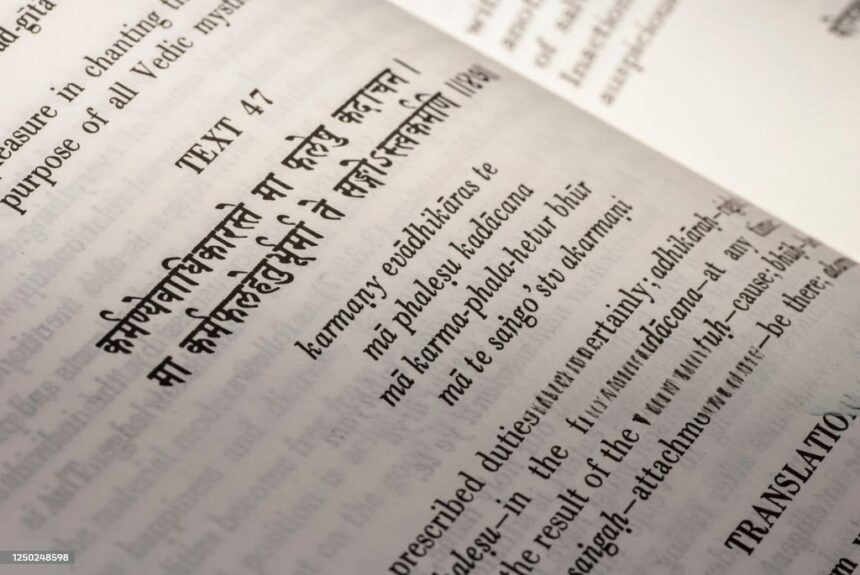The Vedas, the foundational texts of Hinduism, are often viewed as sources of ritualistic and spiritual guidance. However, beneath their hymns and mantras lies a profound ethical framework that merges religion and philosophy. These ancient texts explore the principles of Dharma (righteous duty), Karma (action and its consequences), and Rita(cosmic order), offering a timeless guide to moral living.
This article delves into the ethical dimensions of the Vedas, highlighting how they integrate religious practices with philosophical inquiry to create a balanced approach to life.
The Ethical Core of the Vedas
The Vedas are divided into four main texts—Rigveda, Yajurveda, Samaveda, and Atharvaveda—each addressing different aspects of human life and spirituality. While rituals and worship form the outer layer, the inner essence emphasizes moral and ethical principles.
Key Ethical Themes in the Vedas
- Dharma: The Path of Righteousness
- The Vedas define Dharma as the moral compass that aligns individual actions with universal order.
- Example: The Rigveda emphasizes truth and justice as fundamental virtues, urging individuals to uphold integrity in thought and action.
- Modern Insight: Dharma encourages ethical decision-making, fostering harmony in personal and societal contexts.
- Rita: The Cosmic Order
- Rita represents the principle of natural and moral order governing the universe.
- Example: The Yajurveda connects rituals with Rita, ensuring that human actions maintain balance with cosmic forces.
- Modern Insight: Rita inspires sustainability and ethical stewardship, resonating with contemporary environmental concerns.
- Karma: The Ethics of Action
- Karma ties actions to their consequences, promoting accountability and moral responsibility.
- Example: The Atharvaveda discusses the importance of selfless actions that contribute to the greater good.
- Modern Insight: Karma aligns with modern ideas of cause and effect, encouraging mindfulness in daily life.
Religion Meets Philosophy in the Vedas
The Vedas seamlessly blend the faith-based aspects of religion with the reasoned inquiry of philosophy, creating a holistic ethical framework.
Faith-Based Approach
- Rituals and hymns reinforce the importance of ethical behavior, grounding morality in divine principles.
- Example: Offerings in yajnas are not just acts of devotion but symbolic gestures of gratitude and balance with nature.
Philosophical Inquiry
- The Upanishads, the philosophical portions of the Vedas, delve into existential questions about the self (Atman) and ultimate reality (Brahman).
- Example: The realization of Atman-Brahman unity fosters a sense of universal ethics, transcending individual desires.
Modern Relevance of Vedic Ethics
- Sustainable Living: The Vedas’ emphasis on Rita encourages harmony with nature, addressing today’s environmental challenges.
- Social Harmony: Dharma fosters ethical responsibility and justice, promoting inclusivity and equality in diverse societies.
- Personal Growth: Karma inspires self-awareness and intentional living, aligning actions with long-term values.
FAQs on Vedic Ethics
What Are the Ethical Teachings of the Vedas?
The Vedas emphasize principles like Dharma (righteousness), Karma (ethical action), and Rita (cosmic order) to guide moral living.
How Do the Vedas Integrate Religion and Philosophy?
The Vedas combine faith-based rituals with philosophical inquiry, encouraging both spiritual devotion and intellectual growth.
Are Vedic Ethics Relevant Today?
Yes, Vedic ethics inspire sustainable living, social justice, and personal mindfulness, making them timeless and adaptable.
Conclusion: A Timeless Ethical Framework
The ethical dimensions of the Vedas highlight their unique ability to merge religion and philosophy, creating a comprehensive guide for living a righteous and meaningful life. By emphasizing principles like Dharma, Karma, and Rita, the Vedas offer timeless wisdom that transcends cultural and historical boundaries.
In today’s world, where ethical dilemmas abound, the Vedic teachings serve as a beacon of guidance, inspiring individuals and societies to align faith with reason and actions with universal harmony. This integration of religion and philosophy ensures the enduring relevance of the Vedas as a source of moral and spiritual enlightenment.


Leave a Reply